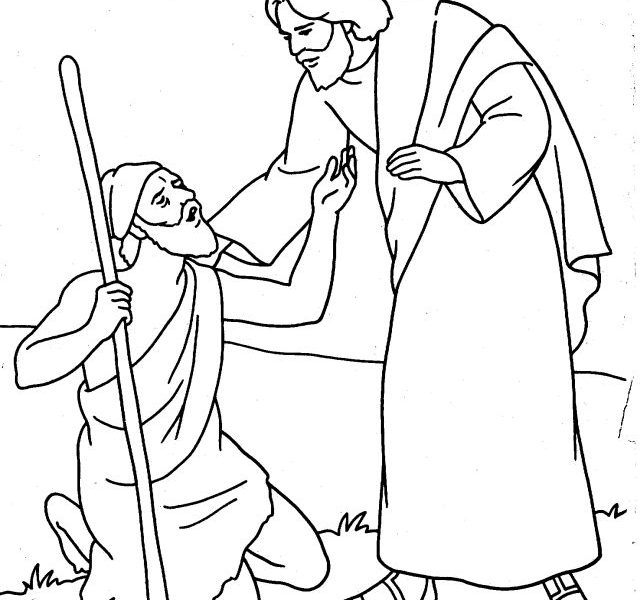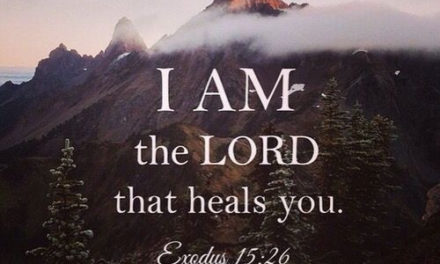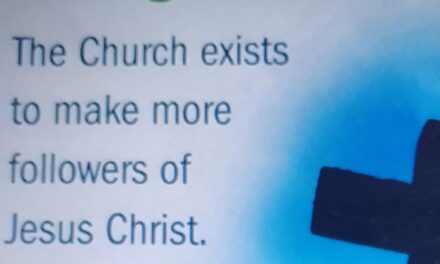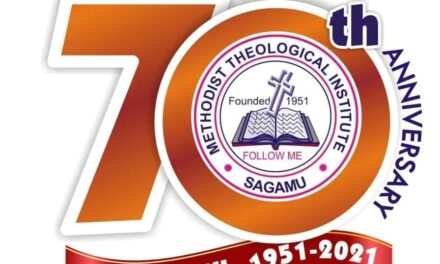In an age when the church and the world continue to invest in a carefully crafted identities and social structures, the Gospel reading today calls us to arise by becoming true followers of Jesus and participate in radical transformation in people’s relationship and identities. The truth is that our identities in Jesus Christ are so opposite of what the world expects hence, it is time for the world to ‘listen to the cry of God coming from the mouths of modern Bartimaeuses willing to challenge the identities we’ve assigned them.’
There is a famous and the last healing story before Jesus’ entry into Jerusalem in our Gospel reading today about a blind man named Bartimaeus who sits by the roadside, begging for alms. We read about Jesus and a large crowd passing by, and Bartimaeus begins to shout: “Jesus, Son of David, have mercy on me!” The sad news was that those who should help him, standing nearby try to shut up him. The reprimands by the crowd inspire Bartimaeus to shout more and louder. The good news is that Jesus stops, stands still and commands the crowd to lead Bartimaeus forward. The crowd around Bartimaeus’ became his helper, they said to him, “Take heart; get up, he is calling you.” What follows is very important for our healing, salvation and church revival. The Bartimaeus in you and I should throw off our cloaks that are hindering our springing up especially in the place of prayer and evangelism. What is it that is preventing you from putting aside the cloak of your pride, perceived security to truly stand empty and dependent before Jesus? Cloak of money, pretext, pretension, power, material, position or our 21st century intellectual and material comfort?
Just as Jesus asked Bartimaeus, Jesus is asking you and I “What do you want me to do for you?” Bartimaeus’ reply offers us a prayer request and model for revival. Bartimaeus said, “My teacher, let me see again.” To see again is not just literary or physical. Jesus’ response telling the man to “Go: your faith has made you well,” is very loaded with meanings. Faith make us well just as the author of the letter to the Hebrew wrote: “To have faith is to be sure of the things we hope for, to be certain of the things we cannot see.” Faith asks for what it wants and not afraid of being disappointed. Bartimaeus wanted to see, he was sure that Jesus could give him what he wanted, and so he asked. Bartimaeus did not abandoned himself to resignation. Beloved, faith’s opposite is resignation, despair, not hoping, not expecting. To be made well just as Bartimaeus was made well is to know that God is with us. To be well is to be certain of the future only in Jesus Christ. To be well is to know that God’s grace will sustain us all the days of our lives. To be well is to know that God with us means life in all its fullness in Christ Jesus.
The literary blindness of Bartimaeus is not as worse as the spiritual blindness of the surrounding crowd, including his blind friends, his blind culture, his blind society, his blind church ‘that renders him unseen. To their seeing eyes, the blind man by the roadside is invisible, and therefore expendable.’ The society’s normal social codes did not work for him nor recognise him. Jesus spoke about being great by being servant, the normal social code, the disciples and the crowd heard the message but no change. They continued their discriminating and ‘habitual way of treating the outcast and marginalised.’ To them, Bartimaeus’ shouts and cries are not worthy of attention nor his suffering important ‘enough to warrant tenderness, patience, or even curiosity.’ Bartimaeus, the invisible, was shut up when he dares to speak out but to the disappointment of the crowd Jesus gave Bartimaeus the opportunity ‘to step outside the identity the Israelite culture had placed on him as marginalized.’ Bartimaeus threw ‘away the symbol of his place as beggar.’
When we see only what we want to see and hear only what we want to hear as a church like the crowd, our only priority will be to restore order, re-establish the social hierarchy, and maintain a status quo that keeps the privileged comfortable.’ As a church, we become powerless like the crowd that surrounds Jesus, and cannot participate in the healing of Bartimaeus because we are spiritually blind. The challenge is that, ‘there are many today in their full humanity on the roadside of their salvation but the church is spiritually blind to see them and respond with compassion. Until the eye of the church is open to the full humanity of the Bartimaeus in our society we cannot partner with God in the healing of homes and nations.’
The church today needs healing ‘just as Jesus healed the crowd first before we can participate in Bartimaeus’ healing, not just physically, food and drink, but visible, validated and baptised as part of God’s people.’ Bartimaeus in his blindness sees what the crowd does not see. He calls Jesus, “Son of David,” a true Messianic identity of Jesus hidden from many people, even today. The church is busy today seeing what they want to see and doing what they want to do but limited in sight to discern Jesus as the Messiah. Modern Bartimaeuses calls us to cast aside what’s most familiar and safe, in exchange for “a way” that is new, and full of uncertainty. Modern Bartimaeus summons us to shed our cloak just as Bartimaeus shed his identity 2000 years ago and set out on “the way,” as a disciple, a traveller, a pilgrim. Modern Bartimaeuses summons us to stop clinging to history but to look unto Jesus, the Author and Finisher of our faith.











Recent Comments